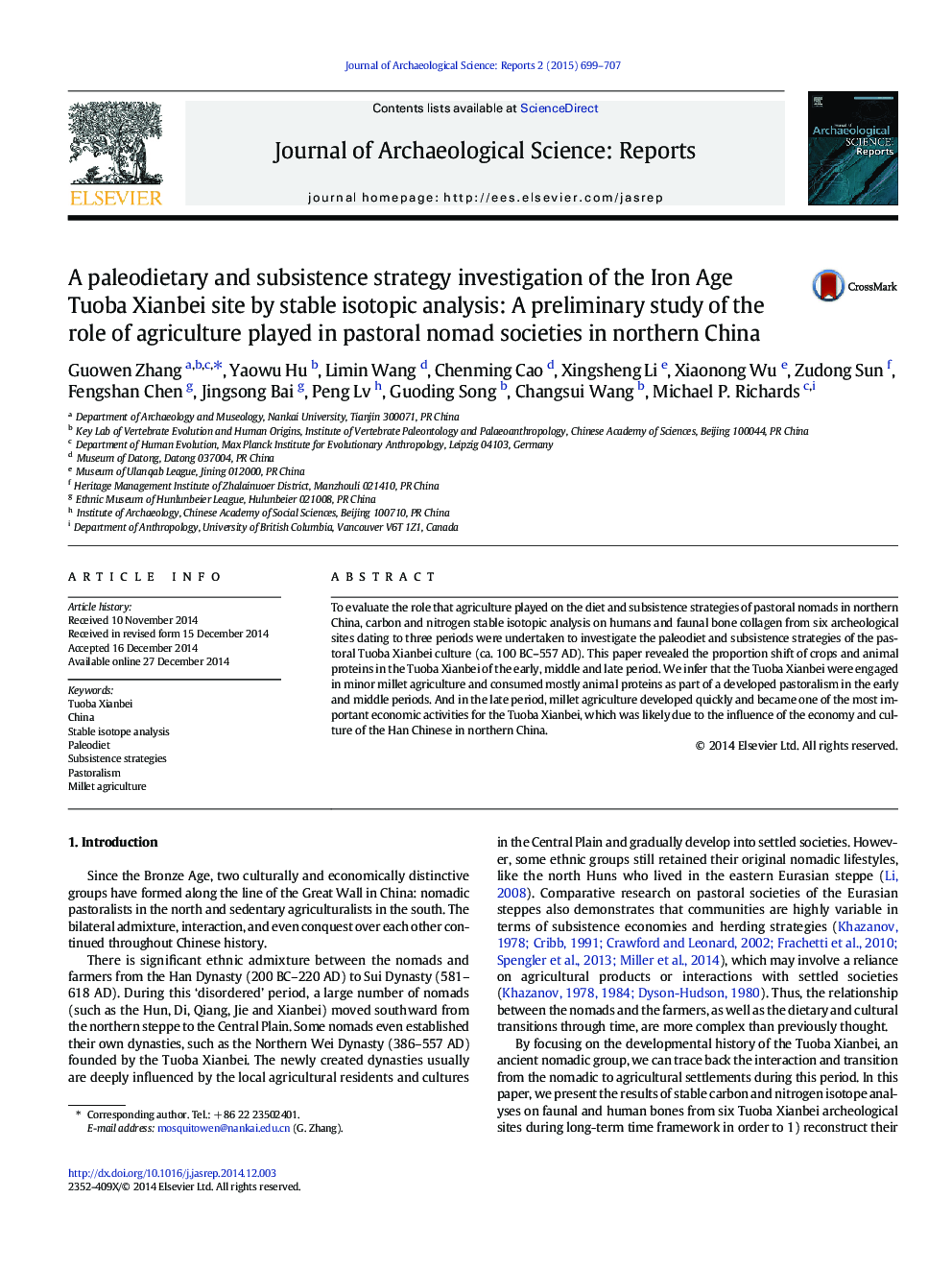| Article ID | Journal | Published Year | Pages | File Type |
|---|---|---|---|---|
| 7446635 | Journal of Archaeological Science: Reports | 2015 | 9 Pages |
Abstract
To evaluate the role that agriculture played on the diet and subsistence strategies of pastoral nomads in northern China, carbon and nitrogen stable isotopic analysis on humans and faunal bone collagen from six archeological sites dating to three periods were undertaken to investigate the paleodiet and subsistence strategies of the pastoral Tuoba Xianbei culture (ca. 100Â BC-557Â AD). This paper revealed the proportion shift of crops and animal proteins in the Tuoba Xianbei of the early, middle and late period. We infer that the Tuoba Xianbei were engaged in minor millet agriculture and consumed mostly animal proteins as part of a developed pastoralism in the early and middle periods. And in the late period, millet agriculture developed quickly and became one of the most important economic activities for the Tuoba Xianbei, which was likely due to the influence of the economy and culture of the Han Chinese in northern China.
Related Topics
Social Sciences and Humanities
Arts and Humanities
History
Authors
Guowen Zhang, Yaowu Hu, Limin Wang, Chenming Cao, Xingsheng Li, Xiaonong Wu, Zudong Sun, Fengshan Chen, Jingsong Bai, Peng Lv, Guoding Song, Changsui Wang, Michael P. Richards,
